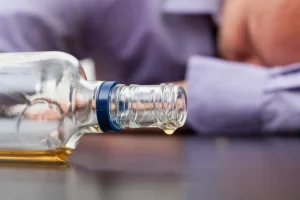Understanding Alcohol and Anger’s Connection

While not everyone who drinks becomes aggressive, for some, alcohol acts as a trigger, unleashing a torrent of pent-up emotions and unresolved issues. The prevalence of alcohol-related aggression is alarmingly high, with studies suggesting that up to 50% of violent crimes involve alcohol consumption. “Hangxiety” is a term used to describe a feeling of nervousness or unease after drinking alcohol. Usually, these symptoms of irritability or a sense of apprehension begin about eight to 12 hours after drinking, as the effects of alcohol wear off. Sometimes, people feel anxious while under the influence of alcohol, which can manifest as feelings of suspicion or anger. Although alcohol consumption may produce short-term relaxing and soothing effects, it has many adverse effects on human behavior and emotions in the long run.
Red Flags and Lifelines: Recognizing and Addressing Angry Drunk Behavior
- They completed surveys assessing their endorsement of traditional masculine norms, use of thought suppression, and both trait and alcohol-related aggression.
- Because of the established link between aggression and alcohol, co-treatments have been developed that can also address anger while drinking.
- No matter the reasons behind feeling anger when drinking alcohol, such behavior can be harmful.
- Researchers surveyed 175 young adults who mixed alcohol with caffeinated energy drinks about their verbal and physical aggression in bar conflicts.
Empathy can decrease tension and improve interactions, reducing the chances of hostile encounters. While anger can underlie aggression, you can be angry and not aggressive or aggressive without being angry. Anger is an emotion made up of many different feelings like dissatisfaction, displeasure, hurt, and frustration. It’s a natural human response when life seems unfair or something you value is under threat. Outpatient treatment is less intensive than inpatient treatment or partial hospitalization programs.
How to find support for anger and alcohol misuse
- The terms “anger” and “aggression” are usually used interchangeably; however, there is a difference between Anger and aggression.
- Research suggests several factors may be involved, including personality, genetics, social considerations, brain chemistry, and brain changes.
- While some individuals may indeed experience heightened anger under the influence of alcohol, others may encounter a range of emotions, including happiness, sadness, or even euphoria.
- The mood someone is in when they begin drinking alcohol is often the mood that will be intensely felt once they’ve reached a level of intoxication.
- Alcohol is a depressant substance, meaning that it helps to suppress some of the “fight-or-flight” stress reactions that anger can induce.
There exists confusion regarding the differentiation between anger, aggression, and hostility, particularly in the context of alcohol consumption. Anger, aggression, and hostility seem like common terms that are related to each other. It is important to understand the specific impact of alcohol on these conditions. This phenomenon highlights the complex interplay between alcohol and emotional regulation, underscoring the importance of mindfulness and self-awareness in alcohol consumption.

Why Do People Get Angry When Drunk: Understanding Alcohol-Induced Aggression
- However, it’s essential to recognize that not all individuals who consume alcohol will exhibit aggressive behavior.
- It’s when you can identify what’s wrong that you can begin to heal from it.
- As alcohol affects the brain’s emotional regulation, it can lead to intense reactions to past hurts, frustrations, or painful experiences.
- The immediate effects include relaxation, impaired reflexes, and altered mood, while long-term use can cause dependence and addiction.
- Violent behavior may occur in as much as 50% of people with alcohol use disorder (AUD).
- Oftentimes, when talking about anger management, healing is also about setting boundaries and learning self-compassion.
- We don’t want you to face uncontrolled anger or alcohol use disorder alone – we want to help.
However, this can depend on having a willingness to change, the support of friends and family members, and, if needed, professional help. Researchers have identified several other factors that may increase the likelihood of post-alcohol consumption aggression. One is a mental orientation Drug rehabilitation toward the present rather than the future. Alcohol consumption significantly increases the likelihood of expressing anger while intoxicated. As alcohol impairs cognitive functions and inhibitions, individuals may experience a diminished ability to rationalize or diffuse feelings of anger. The connection between alcohol consumption and anger is complex, with alcohol often acting as a catalyst that amplifies underlying challenges related to anger management.
Effects of alcohol-related aggressiveness
Alcohol can negatively impact relationships by impairing communication, judgment, and emotional regulation. It can lead to arguments, misunderstandings, and trust issues, especially if drinking leads to aggression or neglect. Chronic alcohol use may result in emotional distance, codependency, or a lack of support. Over time, these behaviors can damage relationships with family, friends, and partners, creating an environment of conflict and instability. Alcohol affects the brain in different ways, impacting emotions and behavior.

- Yes, alcohol can intensify negative emotions, leading to heightened anger and frustration.
- Alcohol can fuel rage or aggressive behaviors even when a person isn’t intoxicated.
- This impact can begin to take place after just one drink, depending on the person and other factors, he adds (2).
- Plummeting serotonin levels hinder the brain’s ability to regulate anger and are linked to impulsive aggression (5).
Researchers were studying people in the Finnish population, of which more than 100,000 people have the genetic variation. Like emotional eating, people often practice emotional drinking to numb the pain they feel. This blog was designed to help you understand the relationship between anger and alcohol and alcohol and aggression how they can amplify each other’s impact. In some cases, medication may be utilized as adjunctive treatment to address co-occurring symptoms such as mood instability or alcohol withdrawal.

